How to Dispose of Cooking Oil (10 Great Tips)
-
Greg Iacono
- Last updated:

Around the world, cooking oil is used to prepare meals or is a byproduct of the cooking process. Although it makes food delicious, cooking oil is messy to work with and dispose of. Many homeowners have the same question; what’s the best way to dispose of cooking oil? We’ve gathered 10 tips below to help you dispose of your cooking oil correctly.
The 10 Tips for Disposing of Cooking Oil
1. Use your Used Cat Litter to Absorb Cooking Oil
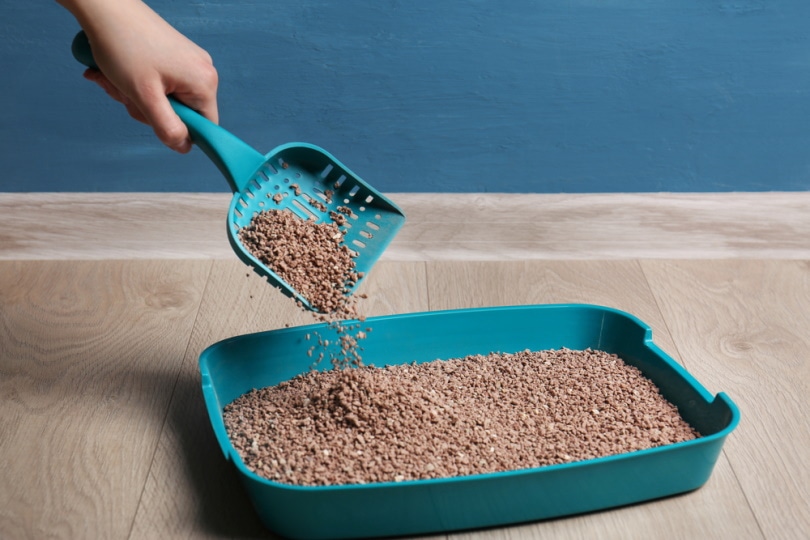
If you have a cat, their kitty litter makes a perfect absorbent base material to dispose of small and medium amounts of cooking oil. You can save the kitty litter in an airtight container like a 1-gallon or a 5-gallon bucket with a lid. Then, when you have some cooking oil to dispose of, pour it into the bucket.
The cat litter will absorb the oil, which can then be tossed into your regular trash. If you have enough cat litter, you can get rid of quite a bit of cooking oil this way. If you don’t have a cat and the kitty litter that comes with it, you can use sand, sawdust, flour, or other absorbent material.
- Easy and cheap
- Absorbs the oil for less mess
- Works quite well
- You need at least one cat
- It’s rather gross and somewhat smelly
2. Pour Small Amounts of Cooking Oil Into Your Regular Trash
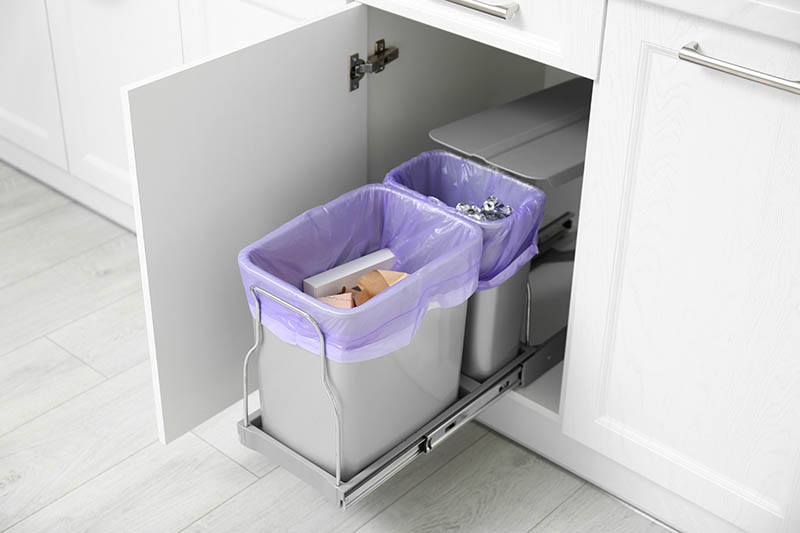
Your regular kitchen trash contains paper towels, cardboard, and other waste that can absorb cooking oil well. You’ll want to cool down the oil before pouring it in and make sure not to pour too much into the same trash bag because it could leak if you do.
- Easy and convenient
- Economical
- Can be messy
- The trash bag could leak and make a mess
3. Recycle Your Cooking Oil
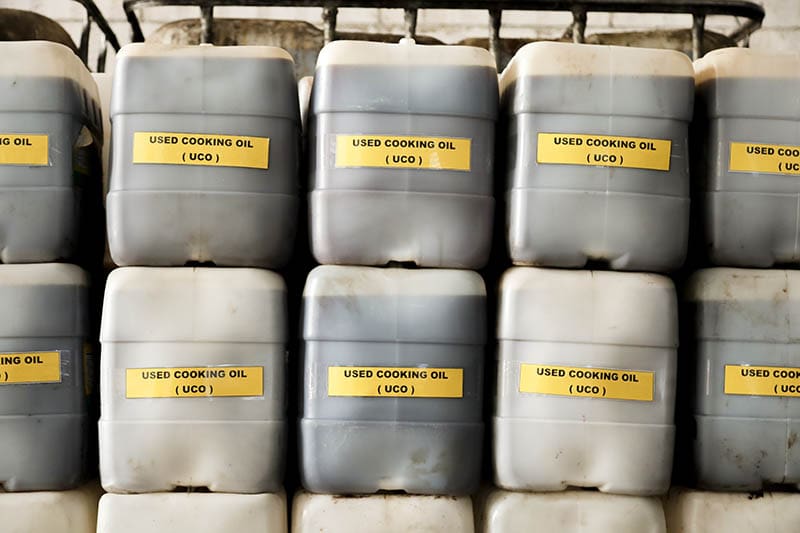
Like many other household trash items, you can recycle your cooking oil. Several cities around the US have cooking oil recycling programs or allow you to drop off your used cooking oil at their facility. Most turn the oil into biodiesel that is then used to fuel cars, trucks, and other vehicles that are usually owned by the city where the facility is located. The used cooking oils can also be used to make heating oil to heat homes, offices, and warehouses.
- Ecologically friendly
- Recycling facilities might not be close to where you live
- Transporting used cooking oil is a mess waiting to happen
4. Freeze Your Cooking Oil before Disposing of It

If you have cooking oil from ground beef or bacon, you can freeze it and then toss it in your outdoor trash can. All you have to do is pour the oil into an empty can, seal the top, and put it in the freezer. When it’s frozen, place the oil in your large outdoor garbage can. If it’s trash pickup day, you can even take the frozen oil out of the can to use the can again.
- Cheap and easy disposal method
- Freezing oil in your freezer can be messy
- The oil can thaw and make a big mess
5. Use a Grease Disposal System
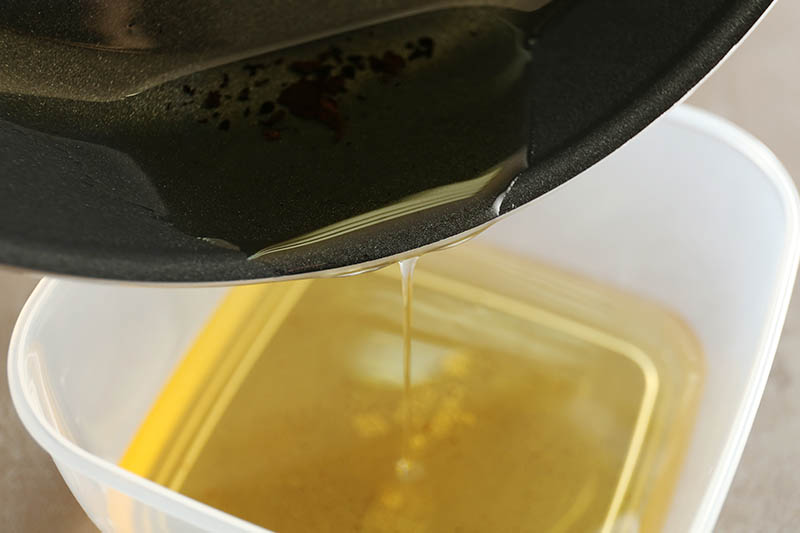
Depending on how much cooking and frying you do, buying a grease disposal system might be a good idea. These are basic systems that usually include plastic containers and foil bags. You pour in your used cooking oil and, when the bag is full, seal it and throw it away in your regular trash.
- Easy and convenient
- Holds a lot of cooking oil
- Great for folks who cook with oil a lot
- It’s an extra expense
- Can be messy when changing bags
- You need to buy new bags regularly
6. Pour the Cooking Oil into a Used Bottle or Milk Container
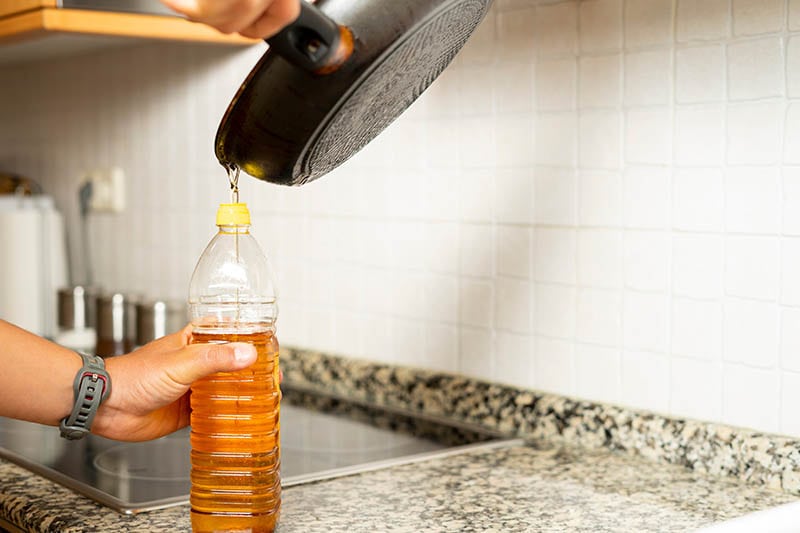
No matter what you cook in your home, you likely throw empty glass and plastic bottles in your trash all the time. You probably have empty cardboard milk and juice containers also, which make excellent containers to get rid of used cooking oil. You need to cool the oil first, especially when using plastic. Then, pour the used oil into the container. If the opening is small, use a funnel to ensure you don’t spill cooking oil all over the kitchen counters.
- Cheap and convenient
- Easy to do if you have a funnel
- Can be messy if you’re not careful
- Not exactly eco-friendly
7. Ask a Local Restaurant to Throw Your Cooking Oil in With Theirs
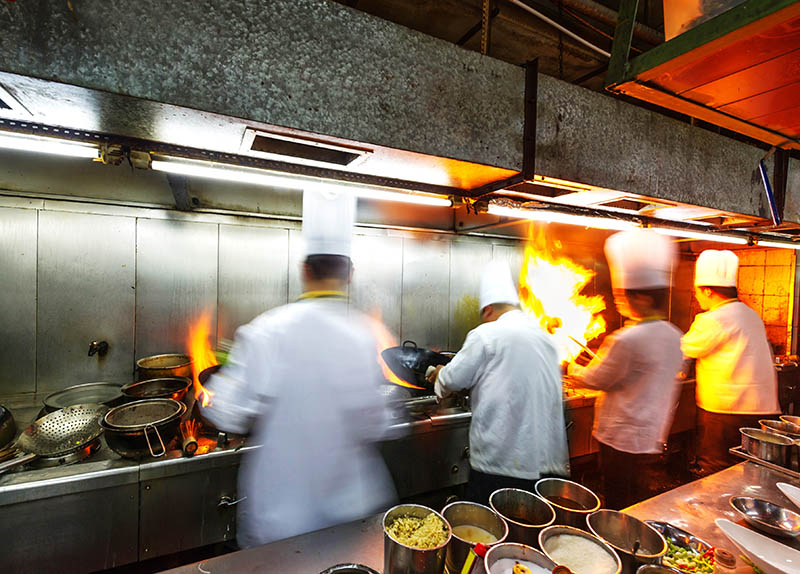
Most restaurants use a metric ton of cooking oil and have on-site disposal systems and oil collection and disposal companies that come to get it. Some even sell their used cooking oil to make extra profits. If you have a lot of used cooking oil, you could ask a friendly manager at a restaurant close by to dispose of your oil with theirs. They might gladly let you do just that if they’re selling their oil.
- Great way to get rid of large quantities of cooking oil
- Taking your oil to the restaurant can be messy
- You need to ask around to find a restaurant willing to help
8. Pour Used Vegetable Oil onto your Compost Pile
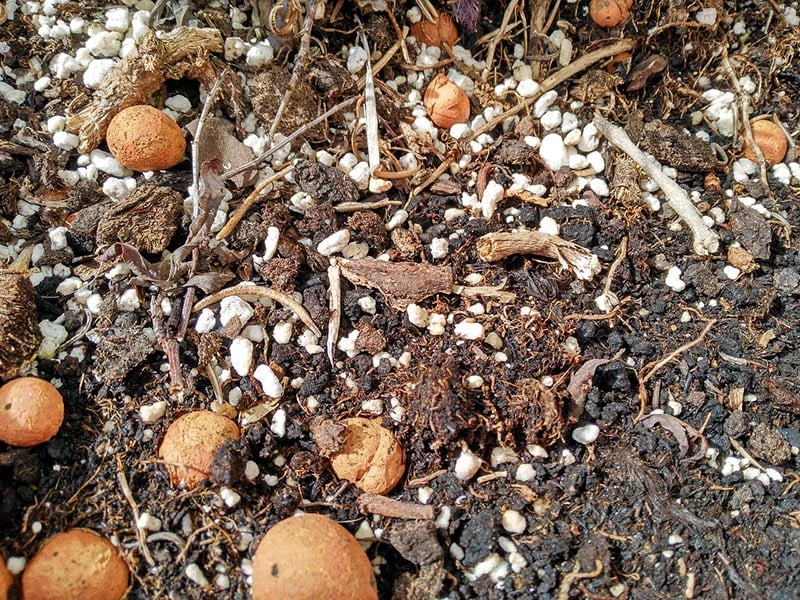
Did you know that earthworms eat vegetable cooking oils like corn, safflower, sunflower, coconut, and soy? You can add your used cooking oil to your compost pile. You should note that only a tiny amount of oil should be poured into your compost at a time, as too much could become a fire hazard. Also, poring animal fat like bacon grease on your compost is highly discouraged since it can attract bugs and wildlife.
- Easy to do
- Ecologically friendly
- Too much oil could cause a fire hazard
- Oils must be 100% vegetable-based
9. Re-use your Cooking Oil
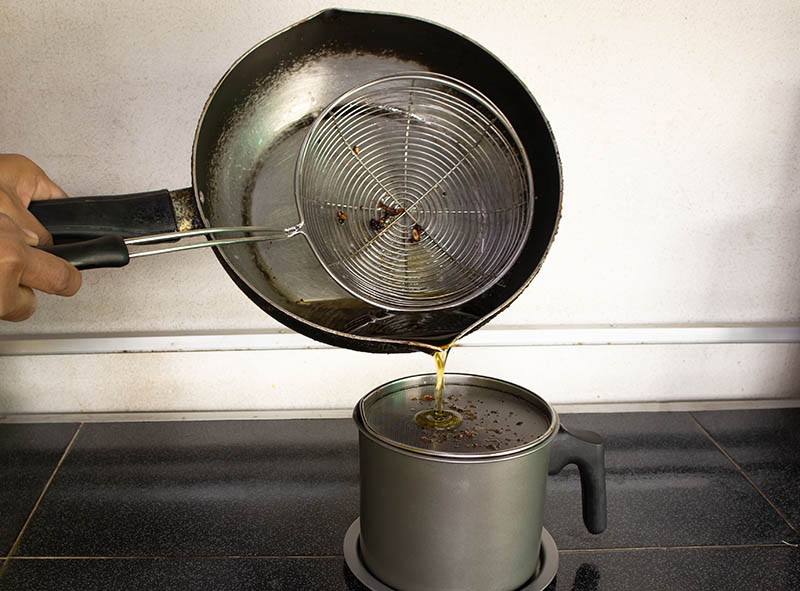
You can use cooking oil several times before it’s no longer viable, so instead of throwing it away, place it in an airtight container and store it in a cool, dry place. Chefs and amateur cooks suggest straining the oil first to remove any leftover food particles. The next time you’re in the mood for fried food, use your used cooking oil instead of fresh oil. You’ll save money and recycle your oil.
- Reduces waste and saves cupboard space
- Saves you money
- Used cooking oil retains odors and flavors
- Storing used oil can be messy
10. Make Soap from your Used Cooking Oil
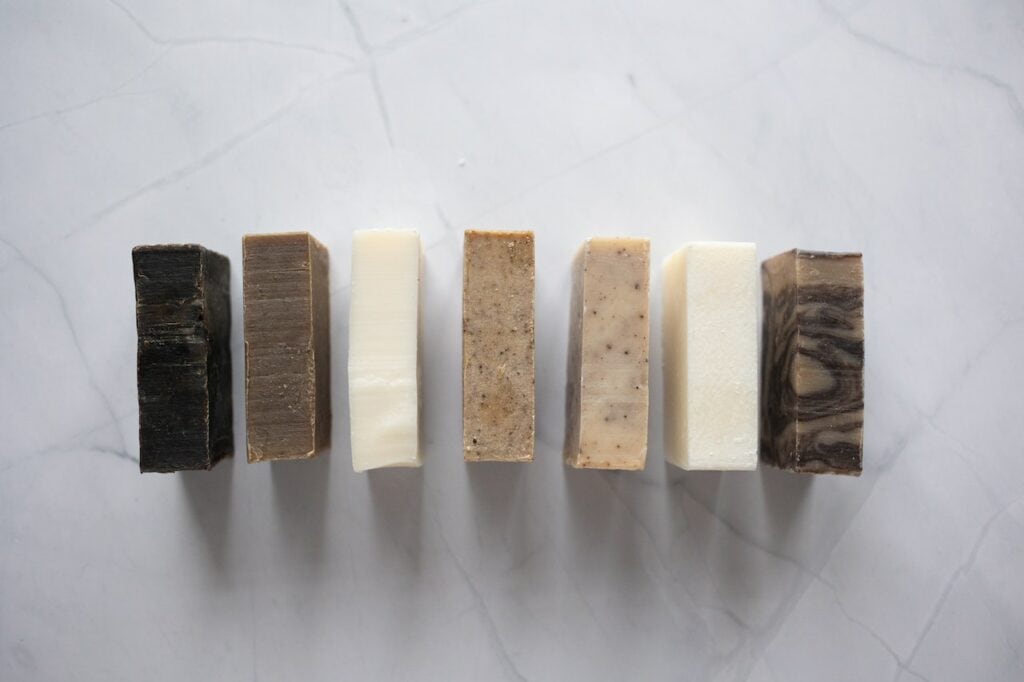
This might sound a little out there, but to make soap, all you need is used vegetable cooking oil, baking soda, and warm water. The resultant soap is excellent for many washing tasks and is surprisingly versatile and 100% natural. The best cooking oils for making soap are avocado, canola, olive, sunflower, and soybean.
- Makes natural soap
- Ecologically friendly
- Takes time and energy
The Worst Methods of Disposing Cooking Oil
We’ve looked at some of the best ways to dispose of cooking oil, but we would be remiss if we didn’t discuss some of the worst.
Pouring Cooking Oil Down the Drain
Pouring used cooking oil down your drain, even in small amounts, can clog your pipes so badly that you’ll need a professional plumber to unclog them. Plus, grease from meat-based cooking oils can attract roaches and other vermin.
Pouring Cooking Oil Into the Toilet
Pouring oil into your toilet can clog the pipes and affect your septic system. Animal-based oils are the worst due to the fat they contain, which congeals and makes incredibly tough clogs.
Pouring Cooking Oil in Your Yard
Some homeowners dump their used cooking oil in an innocuous place in their yard, but that’s a horrible idea. The oil can attract insects, rodents, and even large, dangerous animals. It will also rot and start to smell.
Pouring Cooking Oil in a Storm Drain
Pouring used cooking oil down a storm drain may seem harmless, but, like in your yard, it can attract a variety of unwanted guests like rats, bugs, and roaches. Plus, it’s illegal in many towns and cities and will get you fined for littering.
Final Thoughts
Cooking oil is a blessing and a curse. The benefit is the delicious food that comes from cooking in oil; the curse is disposing of the oil when you’re done. We hope the 10 tips about how to dispose of cooking oil have been helpful and given you the information you need to get rid of yours easily, quickly, and conveniently.
- https://www.bhg.com/recipes/how-to/cooking-basics/how-to-dispose-of-used-cooking/
- https://www.thespruceeats.com/how-do-i-dispose-of-used-cooking-oil-908995
- https://www.actenviro.com/easy-ways-on-how-to-dispose-of-cooking-oil-safely/
- https://www.insider.com/guides/kitchen/how-to-dispose-of-cooking-oil
- https://www.southernliving.com/food/fats/oils/how-to-dispose-of-cooking-oil
Featured Image Credit: New Africa, Shutterstock
Contents
